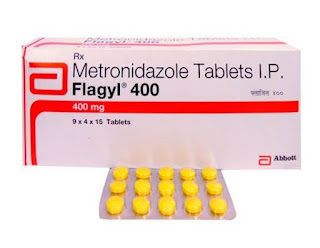Flagyl: Unraveling the Pros and Cons of this Antibiotic
Introduction: When it comes to treating bacterial infections, antibiotics play a crucial role in restoring health and well-being. Flagyl (metronidazole) is one such antibiotic that has been used for several decades to combat a wide range of infections. In this blog, we will delve into the pros and cons of Flagyl, exploring its effectiveness, potential side effects, and key considerations.
Pros of Flagyl:
1. Broad Spectrum: Flagyl exhibits a broad spectrum of activity against various bacteria, protozoa, and anaerobic organisms. It is commonly prescribed to treat infections in the gastrointestinal tract, reproductive system, skin, and other body parts. Flagyl can be an effective treatment option for conditions such as bacterial vaginosis, certain types of sexually transmitted infections, and certain types of diarrheal illnesses.
2. Anaerobic Infection Treatment: Flagyl is particularly effective in treating anaerobic infections, which are caused by bacteria that thrive in oxygen-deprived environments. These infections include intra-abdominal infections, deep-seated dental infections, and infections in the bones and joints. Flagyl's anaerobic coverage makes it a valuable tool for physicians in managing such infections.
3. Protozoal Infections: In addition to bacterial infections, Flagyl is also effective against certain protozoal infections, including trichomoniasis, giardiasis, and amebiasis. It is often the drug of choice for treating these parasitic infections.
4. Availability and Affordability: Flagyl is a widely available and cost-effective antibiotic, making it accessible to a large population. Its availability in generic form further enhances affordability and ensures its availability in various healthcare settings.
Cons of Flagyl:
1. Side Effects: Like any medication, Flagyl is associated with a range of potential side effects. Common side effects include nausea, vomiting, stomach upset, and a metallic taste in the mouth. More severe side effects, although rare, can include neurological symptoms such as seizures, peripheral neuropathy, and encephalopathy. It is essential to be aware of these potential side effects and promptly report any adverse reactions to a healthcare professional.
2. Drug Interactions: Flagyl can interact with certain medications, leading to potentially harmful effects. It is crucial to inform your healthcare provider about all the medications, supplements, and herbal products you are taking to avoid any interactions. Examples of medications that may interact with Flagyl include blood thinners, disulfiram, and lithium.
3. Limited Efficacy Against Aerobic Infections: While Flagyl is effective against anaerobic bacteria and certain protozoa, it may not be the optimal choice for treating infections caused by aerobic bacteria. These are bacteria that require oxygen to survive and can cause respiratory, skin, or urinary tract infections. In such cases, alternative antibiotics with aerobic coverage may be more suitable.
4. Allergic Reactions: Although rare, some individuals may develop allergic reactions to Flagyl. Allergy symptoms may include rash, itching, swelling, or difficulty breathing.
Conclusion: Flagyl (metronidazole) is a versatile antibiotic widely used to treat a variety of infections, including anaerobic bacterial and certain protozoal infections. It offers broad-spectrum coverage and is often the drug of choice in specific clinical scenarios. However, it is essential to be aware of potential side effects, drug interactions, and its limitations against aerobic infections. As with any medication, it is crucial to follow healthcare provider instructions, report any adverse reactions, and discuss concerns or questions with a medical professional.







Good
ReplyDeleteGood info. by NADIR (anabeetechno.blogspot.com)
ReplyDeleteGood
ReplyDeleteGood luck
ReplyDeleteGood
ReplyDeleteVizit my blog
ReplyDeleteNice article, Nadir (Anabee Techno)
ReplyDeleteGreat 👍
ReplyDelete